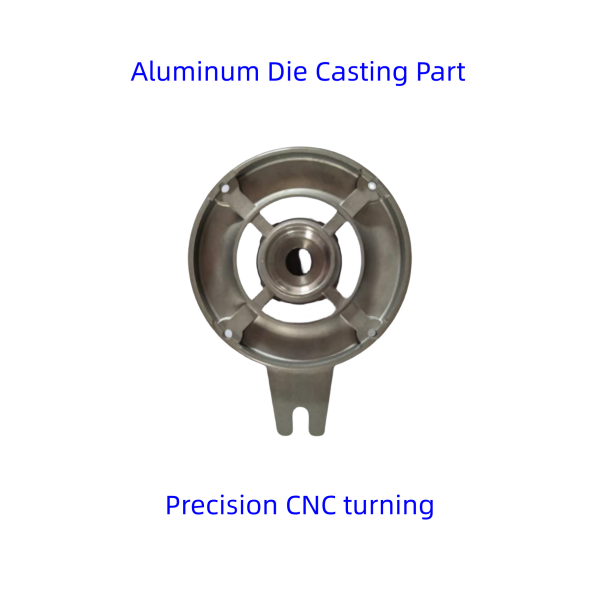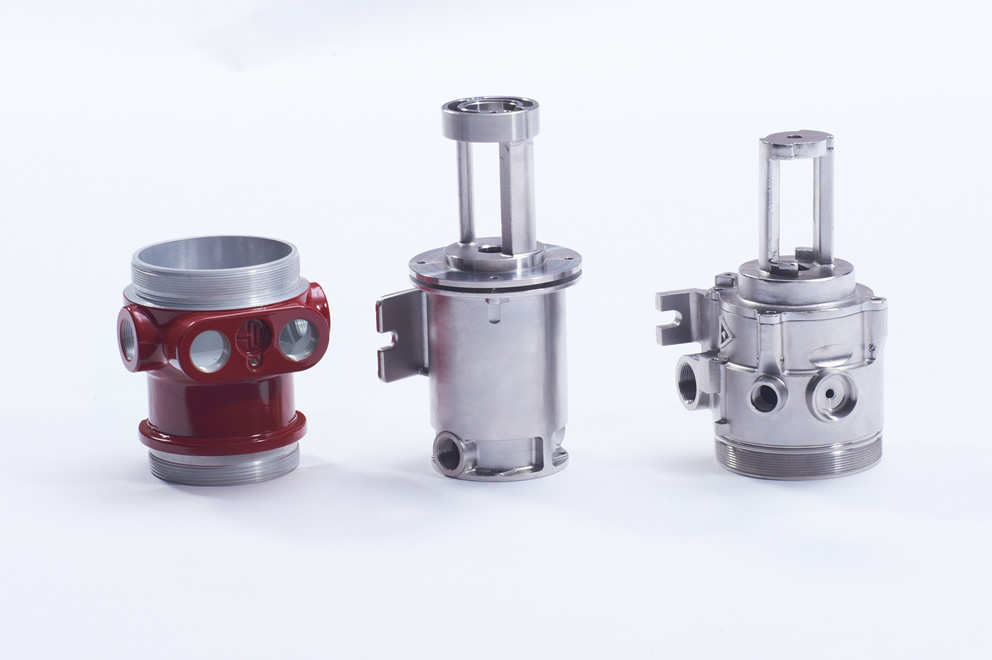The leading reasons why aluminum casting remains in high demand
Checking out the Duty of Shop Providers in Progressing Modern Design Solutions
Shop services are necessary fit modern engineering remedies - Aluminum Casting Company. They bridge the void between conventional manufacturing methods and the demands of contemporary industries. With innovations in automation and sustainability, foundries are evolving to meet the demands of markets such as aerospace and vehicle. This transformation questions regarding the effects for products, processes, and future technologies. What challenges and opportunities exist ahead for shop services in this rapidly transforming landscape?
The Advancement of Factory Providers in Engineering

The combination of computer-aided layout (CAD) and simulation software program has actually revolutionized the style and production processes, enabling factories to produce intricate geometries with greater accuracy. The shift towards environment-friendly practices has led to the fostering of greener innovations and reusing initiatives within factories. As industries significantly prioritize customization and fast prototyping, foundry solutions have expanded their capabilities, ensuring they remain necessary contributors to the design landscape. This development emphasizes the foundry's essential duty in sustaining advancements throughout various sectors, consisting of automotive, aerospace, and power.
Key Procedures and Methods in Modern Foundries
Modern factories use a variety of vital procedures and methods that improve the performance and quality of steel casting. Amongst these, sand casting remains common as a result of its convenience and cost-effectiveness. The use of innovative innovations, such as computer-aided design (CAD) and computer-aided manufacturing (WEBCAM), enables specific modeling and production, making certain high accuracy in part dimensions. In addition, investment spreading is preferred for producing complicated geometries with excellent surface finishes.
Furthermore, automation and robotics enhance production rate and consistency while minimizing labor costs. Methods like additive production are progressively incorporated to generate detailed mold and mildews and cores, thus minimizing material waste. The application of thermal evaluation help in enhancing spreading procedures by anticipating and managing solidification behavior. Jointly, these techniques and processes exhibit how modern-day foundries are adapting to meet the needs of contemporary design challenges, ensuring superior product quality and functional effectiveness.
The Importance of Products Selection in Shop Providers
Choosing the proper products is crucial in foundry services, as it straight influences the mechanical residential properties, toughness, and total efficiency of the end product. Different products possess one-of-a-kind features, such as tensile stamina, corrosion resistance, and thermal stability, which need to align with the desired application of the cast parts. Steels like aluminum and steel are often picked for their strength-to-weight proportion, while alloys can enhance details efficiency characteristics.
The option process includes taking into consideration factors such as accessibility, expense, and manufacturability, which can significantly affect task timelines and budgets. Furthermore, advancements in material science enable the growth of innovative compounds and specialized alloys that accommodate arising engineering obstacles. As a result, a comprehensive understanding of material homes and their effects is crucial for engineers and factory experts to achieve successful outcomes in their projects. This careful choice process eventually boosts the integrity and effectiveness of the end items.
Foundry Solutions in Aerospace and Automotive Applications
Foundry solutions play an essential duty in the aerospace and automotive sectors, where accuracy and efficiency are paramount. These fields count heavily on the production of complex elements that should meet rigorous top quality standards and hold up against extreme conditions. Factories supply crucial services such as spreading, machining, and completing, guaranteeing elements are light-weight yet durable, vital for boosting gas effectiveness and safety and security.
In aerospace, foundry services add to the production of generator blades, engine parts, and architectural parts, all of which need high-performance products and intricate layouts. Likewise, in the auto industry, foundries supply engine blocks, framework parts, and transmission situations, concentrating on toughness and weight decrease.
Advanced factory strategies, including additive production and precision spreading, are progressively used to fulfill the specific demands of these sectors. By providing tailored solutions, foundry services aid drive development and preserve competitive benefits in the fast-evolving aerospace and auto landscapes.
Technologies Driven by Shop Capabilities
Various technologies in design are fueled by the advanced capacities of factory solutions. These services allow the manufacturing of complex geometries and high-performance materials that are vital for modern applications. For instance, additive production, generally referred to as 3D printing, has seen significant innovations with foundry techniques, enabling for the fast prototyping of complex designs. In addition, the capacity to cast lightweight alloys has reinvented industries such as aerospace and vehicle, resulting in improved fuel effectiveness and efficiency.
Foundries are increasingly integrating clever modern technologies, such as automation and information analytics, to boost production effectiveness and top quality control. These innovations not just decrease waste but also enable customization at range, satisfying the details needs of clients. additional info By leveraging innovative foundry abilities, designers can discover brand-new frontiers in product layout and capability, ultimately driving progress across different industries and developing a structure for future innovations.
Future Trends in Foundry Services and Design Solutions
The future of foundry services is formed by arising patterns such as lasting production techniques, which prioritize environmental obligation. Automation and smart innovations are set to boost performance and accuracy, while enhancing modification and adaptability will certainly satisfy the advancing demands of clients. As these fads progress, they will certainly redefine the landscape of engineering solutions in the factory industry.
Sustainable Production Practices
As sectors increasingly prioritize environmental responsibility, lasting production techniques within factory services are coming to be vital to contemporary engineering services. These practices focus on decreasing waste, lowering energy consumption, and utilizing eco-friendly products throughout the manufacturing procedure. By implementing strategies such as recycling scrap steel and maximizing melting processes, shops can significantly decrease their carbon impact. In addition, the adoption of life process assessments enables producers to examine the environmental influence of their products from beginning to disposal. Working together with distributors devoted to sustainability even more improves the performance of these efforts. Inevitably, embracing lasting manufacturing not only lines up with international ecological objectives but also promotes innovation and competition in the rapidly developing engineering landscape.
Automation and Smart Technologies
While numerous markets are accepting technological developments, factory services are experiencing a substantial change via automation and smart innovations. The assimilation of robotics and automated systems enhances production effectiveness, minimizes human error, and increases the manufacturing procedure. Smart modern technologies, such as IoT and AI, enable real-time tracking and predictive maintenance, which maximize functional performance and reduce downtime. These innovations facilitate data-driven decision-making, allowing foundries to respond quickly to market needs and boost product high quality. Furthermore, automation decreases labor costs and enhances workplace safety by handling unsafe tasks. As foundry solutions proceed to embrace these developments, they are poised to redefine design remedies, bring about boosted index competitiveness and sustainability Web Site in the production sector.
Customization and Flexibility Patterns
Emerging patterns in foundry services increasingly highlight personalization and adaptability to satisfy unique consumer requirements. This change mirrors a more comprehensive need for tailored engineering options that adapt to specific project needs and sector standards. Business are purchasing innovative modern technologies, such as additive production and digital modeling, enabling them to produce customized parts successfully and cost-effectively. Because of this, factories are relocating far from one-size-fits-all strategies, using clients the capacity to customize designs and products in real-time. In addition, collaboration between design teams and shop services is becoming extra integrated, promoting development and increasing time-to-market. This trend not just enhances product efficiency yet likewise sustains sustainability by minimizing waste with exact manufacturing procedures.
Frequently Asked Concerns
What Are the Common Expenses Connected With Factory Services?
Typical costs connected with shop solutions consist of product expenses, labor costs, devices use fees, and expenses costs - Aluminum Casting Company. These expenses can differ extensively based on task intricacy, quantity, and specific demands of the design service included
Exactly how Lengthy Does the Foundry Process Generally Take?
The foundry procedure commonly takes anywhere from several weeks to a few months, relying on factors such as complexity, material demands, and production volume, which can substantially affect timelines and overall project delivery.
What Industries Benefit A Lot Of From Shop Solutions?
Industries such as auto, aerospace, and building benefit significantly from factory solutions. These sectors count on accuracy spreading and steel manufacture to produce complex components, boosting product efficiency and functional efficiency in their respective applications.
What Qualifications Should Shops Possess?
Foundries must possess accreditations such as ISO 9001 for high quality administration, ISO 14001 for ecological administration, and certain sector qualifications like AS9100 for aerospace or IATF 16949 for vehicle, ensuring conformity and quality control.
Exactly How Do Foundries Make Certain Top Quality Control in Their Procedures?

Foundry services are necessary in forming contemporary engineering services. As engineering self-controls have progressed, the duty of foundry solutions has changed greatly to meet developing sector demands. As markets significantly focus on personalization and rapid prototyping, factory solutions have expanded their capacities, guaranteeing they stay essential contributors to the engineering landscape. As sectors increasingly focus on ecological responsibility, lasting production practices within factory solutions are ending up being essential to contemporary engineering solutions. Additionally, collaboration in between design teams and factory solutions is coming to be more integrated, cultivating innovation and speeding up time-to-market.